We are pleased to announce that Carlos Gustavo Halaburda will join our Department as a Social Sciences and Humanities Research Council of Canada (SSHRC) postdoctoral fellow for 2021-2023, under the supervision of Prof. Susan Antebi.
Carlos holds a PhD in Hispanic and Lusophone Studies from Northwestern University. His research interests include eugenic legacies and the medicalization of eccentric genders in fin-de-siècle Latin America. Carlos said he was grateful for the opportunity to join our Department: "Professor Susan Antebi is a pioneer expert on the history of body spectacles and the commodification of queerness, broadly understood as a dissident condition that challenges normative understandings of gender, sexuality, and cognition. I look forward to conducting my postdoctoral work at the Department of Spanish & Portuguese under her mentorship."
His current book manuscript, The Erotics of Supremacy: Melodrama and the Queer Futures of Whiteness in Belle Époque Latin America, examines how the criollo elites associated whiteness with heteronormativity and reproductive futurity in their literary experiments, including novels, medical studies, crónicas, and plays. Focusing on the cultural production of the Caribbean, Mexico, and the Southern Cone, the book argues that a series of literary and psychiatric fictions recurred to melodramatic tropes about purity, honour, and dignity to produce whiteness as a differential physiognomic and anatomic condition thus elevating criollos over social groups deemed "abnormal". The project seeks to show that imagining the reproductive futures of white criollos required the differentiation of two uses of sexuality: endogamic sex was related to the preservation of racial lineages and political futures while queer and interracial sex were characterized as decadent. The fin-de-siècle melodrama, the research suggests, became an essential mode to empower whiteness, widely understood as "the universal embodiment of civilization", while stigmatizing a broad range of non-normative positions: the queer, the immigrant, the indigenous, the mestizo, the neurodivergent, and the Afro-descendant.
His peer-reviewed articles have appeared in journals such as Taller de Letras and Latin American Theatre Review. He has upcoming articles to be published by Revista Canadiense de Estudios Hispánicos, Symposium, and Metales Pesados. With Nathalie Bouzaglo, he co-edited an annotated introduction to the re-edition of Venezuela’s first naturalist novel Débora (1884) by Tomás Michelena (Himpar eds., 2020), a pioneer work in the portrayal of nineteenth-century homosocial ties. Research for these projects has drawn financial support from the Social Sciences and Humanities Research Council of Canada, the Berlin IberoAmerikanisches Institut, and the Roberta Buffet Institute for Global Affairs.
His postdoctoral project Feminist Teratologies: Modernismo & Avant-Gardes, Queer Women, and the Monster Gender in Latin America, 1888-1933 examines how queer women, pejoratively called marimachos in the vernacular culture, came to embody a dissident identity that disputed gender binarism and Victorian codes of womanhood, decorum, and maternity. Using crosscutting thematic grids from disability studies, medical humanities, queer and trans* studies, the project seeks to contribute to the emerging scholarship on nineteenth-century female subcultures and the history of transgenderism in the Global South.


